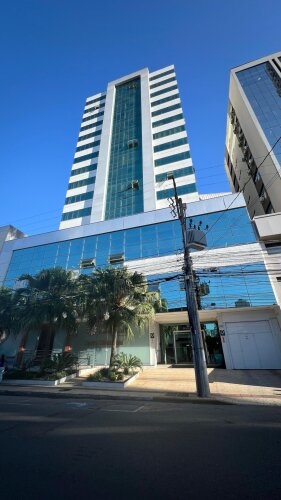Best Trusts Lawyers in Itajaí
Share your needs with us, get contacted by law firms.
Free. Takes 2 min.
List of the best lawyers in Itajaí, Brazil
About Trusts Law in Itajaí, Brazil
Trusts, as recognized in common law jurisdictions, are not formally regulated by the Brazilian legal system, including in Itajaí. The concept of a trust, where one party holds property for the benefit of another, does not exist in the same way under Brazilian law. Instead, Brazil relies primarily on civil law mechanisms such as wills, donations, usufructs, and family holdings (holding familiar). Despite this, there are legal tools available that can serve similar functions as a trust, especially for succession planning, asset protection, and estate management. Understanding how these instruments work within the Brazilian context is essential for anyone considering trust-like arrangements in Itajaí.
Why You May Need a Lawyer
People in Itajaí may seek legal assistance for trust-related matters for various reasons, including:
- Succession planning and inheritance distribution
- Protection of family assets and business succession
- Setting up a holding company or similar structure for asset management
- Resolving disputes among heirs or family members
- Complying with local and international legal requirements for asset transfers
- Tax planning and optimizing inheritance tax liabilities
- Drafting and reviewing wills and donations
- Ensuring the legal validity of contracts and asset allocations
- Managing assets for minors or individuals with disabilities
- Investment through offshore trusts or foreign entities
Because Brazilian law is unique in its approach to asset management and succession, consulting a lawyer ensures your plans are legally sound and meet your objectives.
Local Laws Overview
Brazilian law, including in Itajaí, does not officially recognize trusts but provides for alternatives within the Civil Code. Key areas of legislation relevant to asset planning and management include:
- Wills and Succession - The Civil Code governs the drafting and execution of wills, and the rules for distributing assets upon death, with mandatory shares for certain family members (legítima).
- Donations (Doações) - Transfers of assets during life are subject to rules and limitations, including the necessity to respect lawful heirs' rights.
- Usufruct - This creates asset use rights for a beneficiary while ownership remains with another, mirroring some trust functions.
- Family Holdings - Common for managing family assets and businesses. The creation of a holding company can facilitate succession and asset protection akin to a trust.
- International Trusts - Although not recognized under Brazilian law, investments in foreign trusts or offshore structures by Brazilians must be declared and are subject to specific tax and reporting rules.
Given the absence of formal trusts, lawyers in Itajaí help clients navigate these civil law alternatives to achieve desired outcomes.
Frequently Asked Questions
What is a trust, and does it exist under Brazilian law?
A trust is a legal arrangement typical in common law countries where assets are held by one party for another's benefit. Brazil, including Itajaí, does not formally recognize trusts, but there are alternative legal instruments with similar functions.
How can I protect my assets in Brazil in a way similar to a trust?
Protection mechanisms often involve family holding companies, usufruct rights, donations with reserved rights, and robust succession planning through wills under the Civil Code.
Can I create a family trust for inheritance in Itajaí?
No, but you can use instruments like wills, donations, and holding companies to manage inheritance and asset succession.
Are holding companies similar to trusts?
While not identical, a family holding company can centralize and manage asset distribution, providing benefits similar to trusts in succession and asset protection planning.
How does the law protect heirs in Brazil?
The law guarantees mandatory shares to legal heirs (descendants, ascendants, spouses). You cannot disinherit them without lawful reason, regardless of other planning instruments used.
Are foreign trusts valid in Brazil?
Foreign trusts are not recognized for legal effect in Brazil but may be used for international investments. Brazilians must still comply with local reporting and tax rules for these assets.
When should I see a lawyer about trusts or asset protection?
Consider legal advice if you possess significant assets, want to plan your estate, face complex family situations, or have international holdings.
Can minors or incapacitated individuals have someone manage assets for them?
Yes, through court-appointed guardianship or by using usufruct and similar arrangements, with judicial oversight to protect their interests.
Is it possible to avoid inheritance tax through a trust structure?
Brazil has inheritance taxes (ITCMD), and while planning can optimize liabilities, using unrecognized structures like trusts does not provide tax benefits unless legally permitted.
How do I set up a holding company for family assets in Itajaí?
Setting up a family holding involves company formation and drafting specific governing documents. A lawyer can structure the company to align with your goals and comply with local law.
Additional Resources
For more information and assistance with trusts and trust-like arrangements in Itajaí, consider consulting:
- OAB - Ordem dos Advogados do Brasil, Seccional Santa Catarina: Provides lawyer referrals and legal guidance.
- Cartórios de Registro de Imóveis, Títulos e Documentos, e Pessoas Jurídicas de Itajaí: Essential for property, company, and will registrations.
- Receita Federal do Brasil: For tax-related information on donations, inheritances, and foreign assets.
- Tribunal de Justiça de Santa Catarina: For judicial proceedings such as probate (inventário), guardianship, and related matters.
- Local law firms and notary offices: Provide tailored legal advice and document preparation.
Next Steps
If you require legal assistance on trusts or similar asset protection strategies in Itajaí, follow these steps:
- Identify your needs regarding asset management, estate planning, or family business succession.
- Gather documentation of your assets, family structure, and any relevant contracts or existing legal instruments.
- Consult a lawyer experienced in civil, succession, and corporate law in Itajaí.
- Discuss your goals and concerns openly to find the most suitable legal arrangement within Brazilian law.
- Review and formalize documents-such as wills, donation agreements, or holding company bylaws-with your lawyer's guidance.
- Stay informed about changes in local and international law that could affect your plans.
Legal advice is crucial to ensure your asset planning complies with local law and meets your objectives. Starting with a qualified lawyer will help you make the best decisions for yourself and your family in Itajaí.
Lawzana helps you find the best lawyers and law firms in Itajaí through a curated and pre-screened list of qualified legal professionals. Our platform offers rankings and detailed profiles of attorneys and law firms, allowing you to compare based on practice areas, including Trusts, experience, and client feedback.
Each profile includes a description of the firm's areas of practice, client reviews, team members and partners, year of establishment, spoken languages, office locations, contact information, social media presence, and any published articles or resources. Most firms on our platform speak English and are experienced in both local and international legal matters.
Get a quote from top-rated law firms in Itajaí, Brazil — quickly, securely, and without unnecessary hassle.
Disclaimer:
The information provided on this page is for general informational purposes only and does not constitute legal advice. While we strive to ensure the accuracy and relevance of the content, legal information may change over time, and interpretations of the law can vary. You should always consult with a qualified legal professional for advice specific to your situation.
We disclaim all liability for actions taken or not taken based on the content of this page. If you believe any information is incorrect or outdated, please contact us, and we will review and update it where appropriate.









